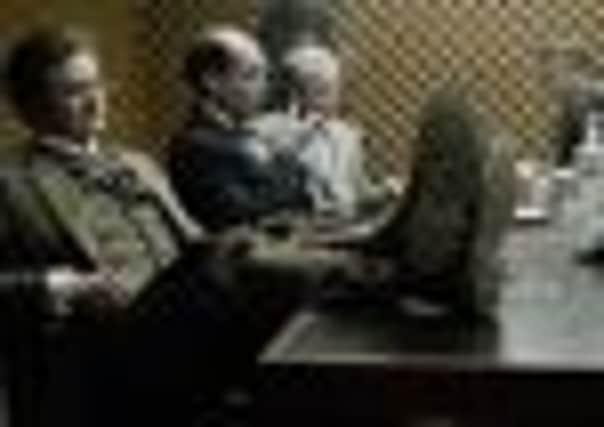Tinkering in the spy game


Add to that a 1970s BBC serialisation held dear by those who remember it and the risk of transferring it to film increases greatly.
So it’s with great relief that Tomas Alfredson and his A-list cast bring this espionage saga to life with razor-sharp execution.
Advertisement
Hide AdAdvertisement
Hide AdFor those who don’t know, the action takes place in London in the 1970s. After a covert operation fiasco, British intelligence spymaster Control (Hurt) and his right-hand man George Smiley (Oldman) are sacked.
Then shocking but persuasive information that a Soviet mole has penetrated to the heart of the secret service prompts Whitehall chiefs to task Smiley with spying on the spies.
Pulled back into the Cold War spy game to unmask the traitor in the MI6 circus, Smiley learns that Control has sniffed out the mole and assigned code names for his principal suspects.
Tinker is smug Percy Alleline (Toby Jones), Tailor is sardonic Bill Haydon (Colin Firth), Soldier is bluff proletarian Roy Bland (Ciarán Hinds), Poor Man is prissy Toby Esterhase (David Dencik), and sadsack Smiley, also a suspect, Beggarman.
Advertisement
Hide AdAdvertisement
Hide AdThere’s even a cameo from le Carré, who can be seen among the Circus staff drunkenly hailing the arrival of Santa Lenin at the ghastly office Christmas party.
But those who have not read the book or seen the BBC version do not need to worry too much about the numerous plot intricacies although they are well explained.
What matters is the Russian doll-like layers of betrayal: to country, cause, colleagues, lovers and to self.
The sterling cast ensures a level of class that can only be gained from working with such professionals, but the real stroke of genius was in recruiting Alfredson – a dab hand at portraying a sense of Swedish melancholia
Advertisement
Hide AdAdvertisement
Hide AdTurning a baleful gaze on le Carré’s miserable spies – a breed of men he characterised as unromantic figures prone to unpleasant stomach ailments and trouble with their wives – he focuses on tiny details which reveal all.
Oldman’s performance is startlingly expressive, the set of his shoulders, his posture, the occasional adjustment of his spectacles, are the tell-tale signs of his mind’s inner turmoil.
Alfredson is startlingly adept at envisioning how Smiley’s mind works; you can almost see the cogs creaking towards a conclusion as the pieces of the puzzle form the bigger picture.
More than two hours of screen time leaves critics shifting irritably in their seats, but with this film another half-hour could have been used to generate even more suspense.
Advertisement
Hide AdAdvertisement
Hide AdIt’s really the revelation of the mole that lets it down but then again you should have worked it out by then – of course it is him.
The only criticism is the realisation comes off as a trifle cool but on balance, it takes a brave stance, and it undoubtedly pays off.